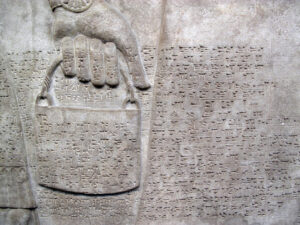Much of my time is spent doing ministry to Chinese graduate students at the universities of Cambridge, MA, but the rest of my time is spent studying the Old Testament and the Ancient Near East. It is not uncommon for me to finish a class at Harvard’s Semitic Museum, then walk down the street and read Scripture together with a Chinese student elsewhere on campus. In the eyes of many, I have found, these two aspects of my life appear unrelated or even at odds with each other. Why am I learning ancient Babylonian when I could be learning Chinese? Any believer with an interest in academic theology or biblical studies knows that the Old Testament is a minefield for debate. The past two centuries of historical-critical academic work have typically sought to push the dating of the Old Testament books forward in history, and have called the historicity of the key events into question. The liberal critical school is balanced by a tradition of conservative scholarship, which has drawn on archaeology and ancient history as well as the text itself to defend traditional orthodoxy. Of course, even within the evangelical camp there is disagreement and debate. So the question stands: does the messy state of Old Testament studies in the have relevance for the growing church in China? Aren’t they better off without our baggage?































